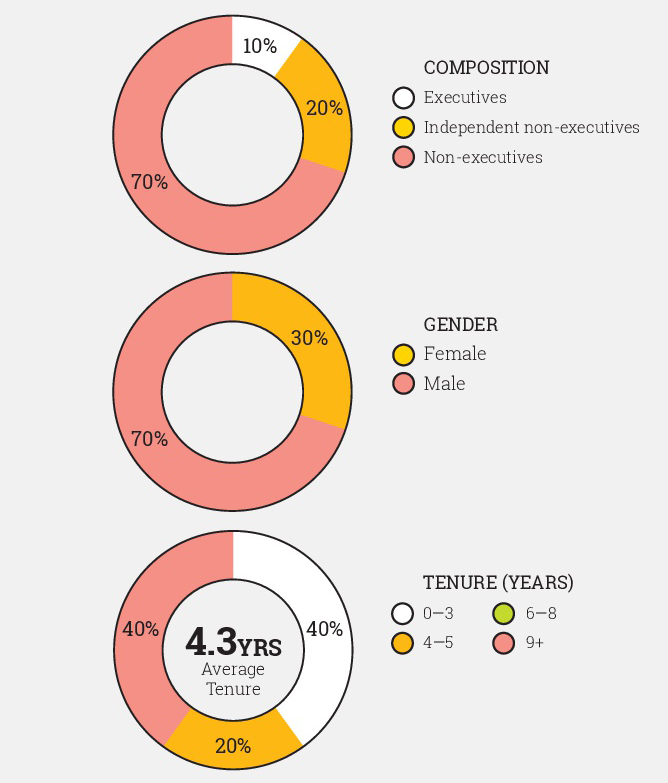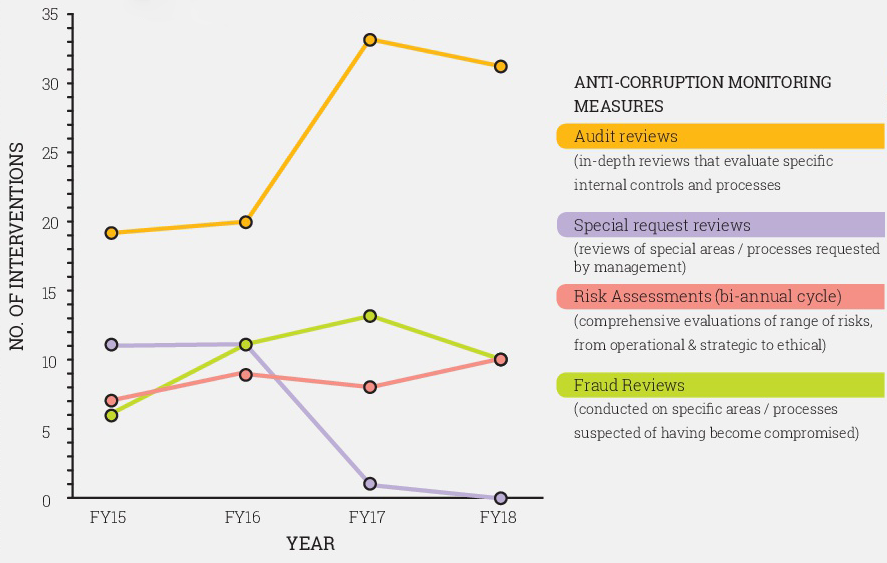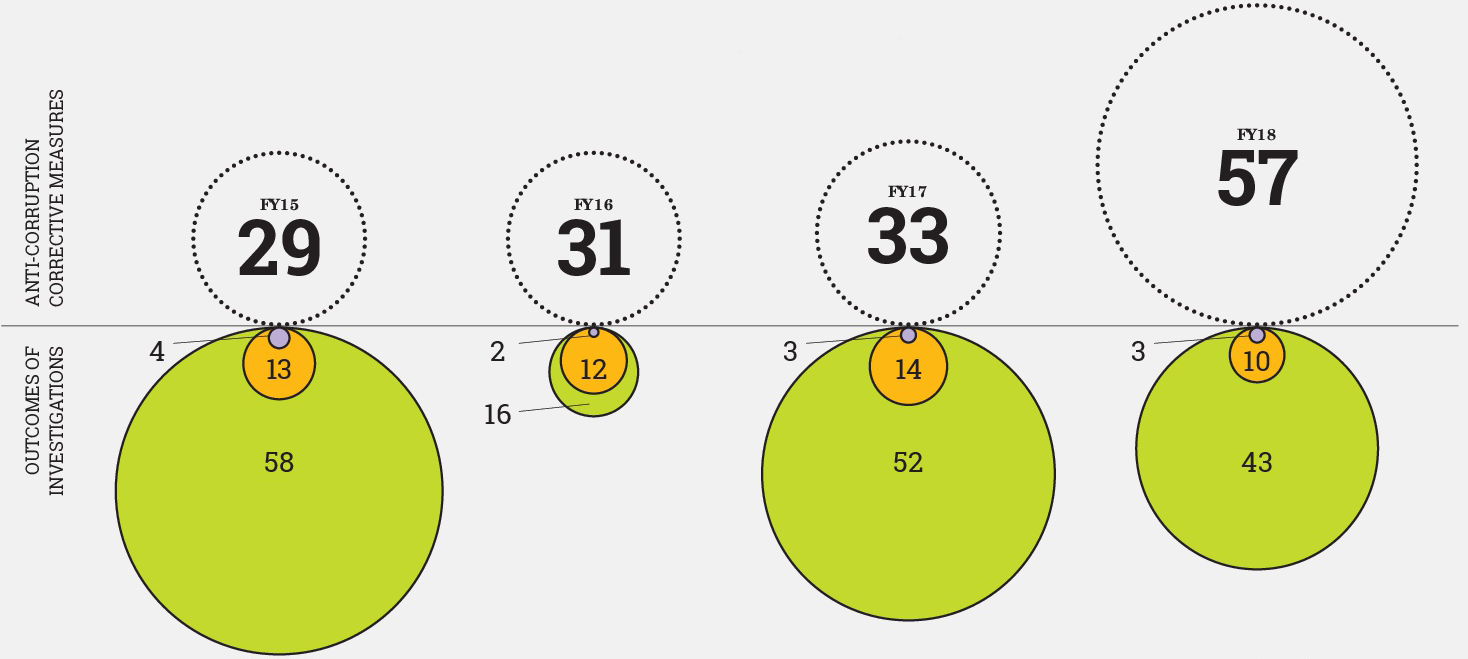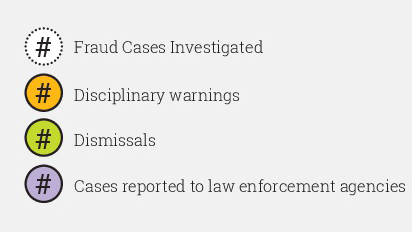BUSINESS ETHICS, GOVERNANCE, RISK AND REGULATION
We consider sound corporate governance, ethical behaviour, robust risk management and regulatory compliance to be fundamental to our commercial sustainability. If the business is not run in an ethical, transparent and accountable manner, Safaricom is likely to be impacted by legal and reputational risks, as well as being disadvantaged as a result of eroded employee and investor trust and confidence, which quickly translates into lost opportunities and diminished success.
As part of our ongoing commitment to the SDGs, we continued to align our efforts regarding ethics, governance, risk and regulation with fi ve of the goals that represent areas over which we are able to achieve signifi cant impact in our own business and amongst our stakeholders: promoting ethical business practices and fighting corruption in all its forms within Safaricom (SDG16) and within the wider business community (SDG17); pledging to create a non-hostile and secure workplace (SDG8) within which all employees are treated equally (SDG10); and striving to provide universal access to high quality information and communications technology for Kenyan citizens through our network (SDG9) as part of our work with the regulators.We publish this report to disclose the progress we have made towards our goal of building a more sustainable future.
Since 2012, we have been documenting our sustainability journey because we believe in holding ourselves accountable by sharing our successes, our challenges and our constraints in a public, transparent and open manner. We also publish this report because we believe that we have a duty to raise awareness of the sustainability challenges we face as a society and to ensure that these remain part of the discussion in Kenya and around the world.









